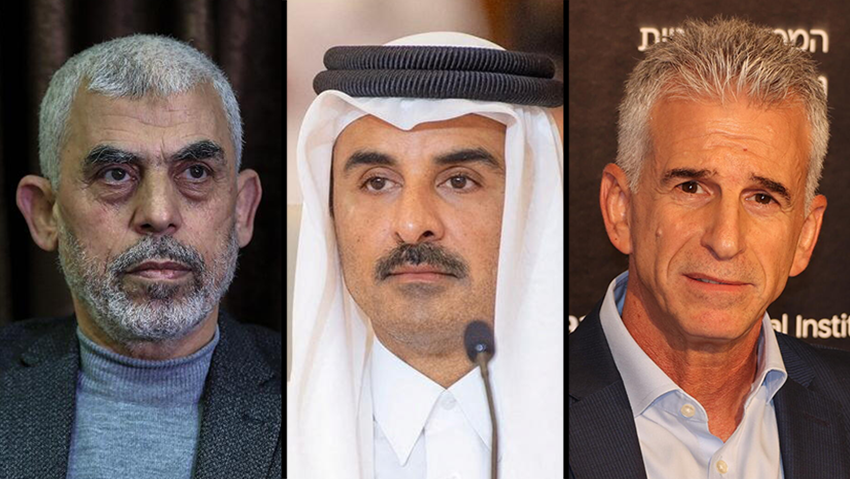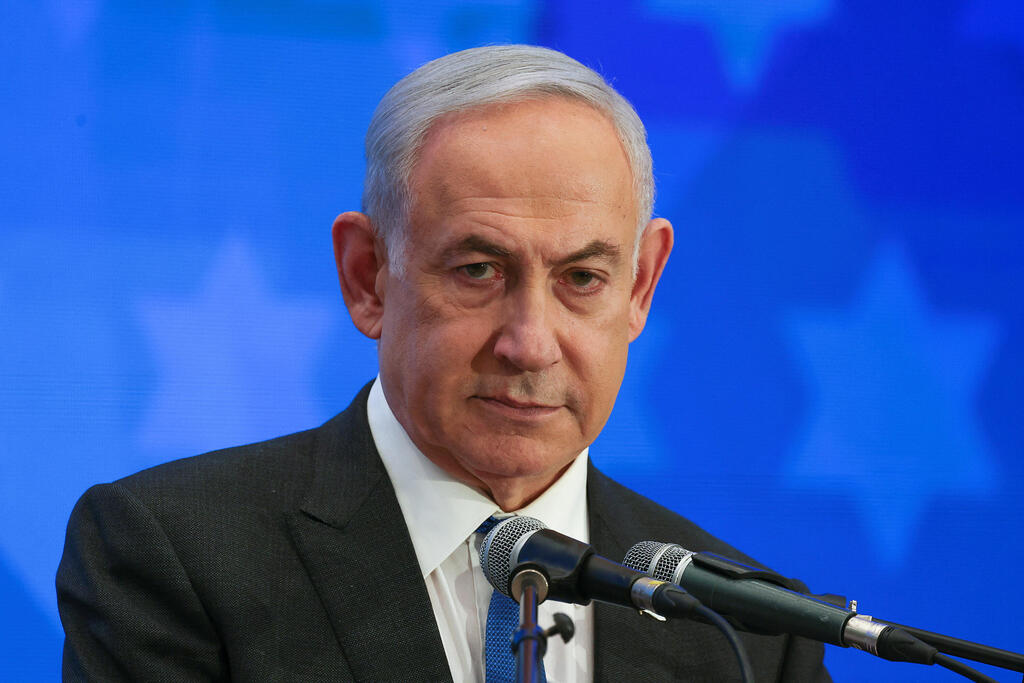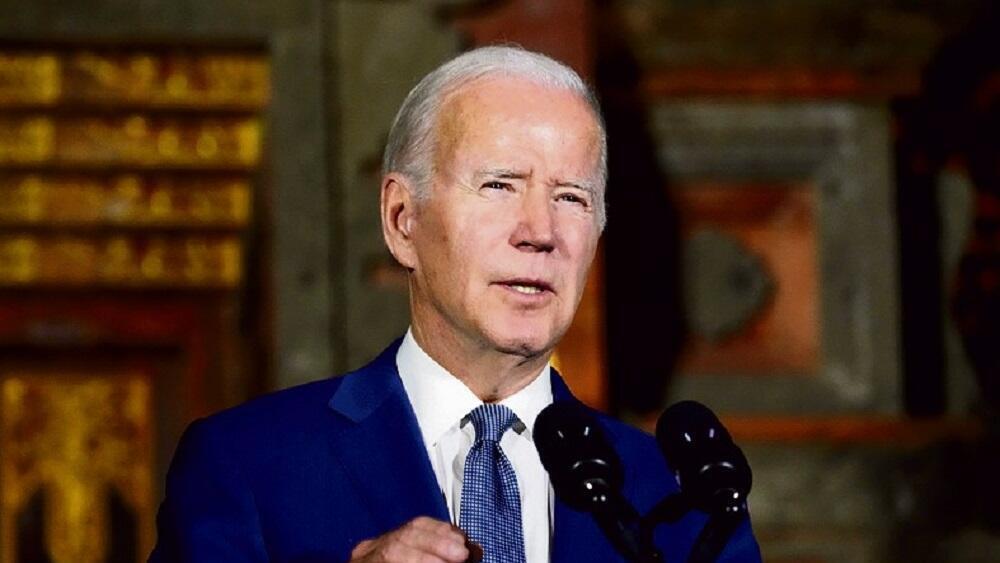Getting your Trinity Audio player ready...
Even though the Israeli negotiating team has returned from Qatar, mediating countries indicated on Tuesday night that they are still committed to advancing the hostage-for-prisoner exchange deal. They are also examining potential avenues of pressure that can be placed on Hamas that have not yet been used.
3 View gallery


Mossad chief David Barnea, Qatari Mohammed bin Abdulrahman bin Jassim Al Thani and Yahya Sinwar
(Photo: Yariv Katz , Reuters, EPA)
Following Hamas' rejection of the U.S. compromise proposal, Israel recalled its negotiating team, made up of officials from the Mossad, Shin Bet, and the National Intelligence Directorate. However, two key representatives who maintain communication with the Qataris remained in Doha. The Americans also retained their representatives, who are considering an additional compromise proposal to be presented to the involved parties in the near future.
Senior Israeli officials acknowledged the poor optics of the situation and voiced concerns over Hamas' proposal, which essentially rejects negotiations without providing a counter-proposal. The Israeli side is currently scrutinizing Hamas' response, cross-referencing it with intelligence, and exploring the possibility of challenging it. Regardless of the current crisis in talks, diplomatic contacts persist, although at a reduced intensity.
Amid these developments, the War Cabinet has seen criticism directed at Prime Minister Benjamin Netanyahu, with claims that he did not grant the team a sufficiently broad mandate that could have drawn Hamas into negotiations. A cabinet member contended that Netanyahu did not act decisively toward a deal.
But a senior political figure argued that "the issue isn't the mandate, the main problem is that (Hamas leader Yahya) Sinwar doesn't want a deal." He said that "Hamas isn't interested in negotiations, and the pressure is shifting to the mediators and the IDF. Hamas' responses indicate a lack of desire to progress at all. Israel is prepared to make compromises. There's a significant gap that could be bridged; but without Hamas' cooperation it's pointless."
3 View gallery


Criticized for insufficient mandate, Benjamin Netanyahu
(Photo: REUTERS/Ronen Zvulun)
"Sinwar is gleefully hands-off," the senior official added. "He's under no military pressure and faces no restrictions on food, fuel or medicine. His warehouses are full. He watches as Israel's staunch allies turn their backs, international decisions go against Israel, and the pressure on Israel intensifies, and he's looking to gain time. The mediators haven't thrown in the towel and will present new proposals in the coming days."
Upon Hamas' reported rejection of the American compromise proposal, Mossad chief David 'Dadi' Barnea instructed the Israeli negotiating team in Qatar to return home. A political insider explained that Netanyahu had established certain boundaries that, once reached, made it clear that further progress was not feasible, leading to the decision to recall the delegation. This team had been engaged in 10 days of negotiation between the sides in Qatar.
The Prime Minister's Office interpreted Hamas' response as a reaction to the Security Council's vote on a resolution the day before which called for an immediate cease-fire and the release of all captives - a decision that the US did not impose a veto on.
Hamas's stance clearly demonstrates its utter disinterest in a negotiated deal and attests to the damage done by the UN Security Council's resolution," said a statement issued by the PMO.
"Hamas has once again rejected an American compromise proposal and has repeated its extreme demands: An immediate halt to the war, the complete withdrawal of the IDF from the Gaza Strip and leaving in place its administration so that it can repeat, time and again, the massacre of October 7, as it has promised to do," the statement continued.
In contrast, shortly following Israel's declaration, the Qatari Foreign Ministry announced that it perceives no "negative impacts" on the ongoing negotiations, as Israel has claimed. A "source familiar with the negotiations" reported to Reuters that the Mossad teams are still stationed in Doha and the talks are indeed ongoing. According to this source, only a small team is returning to Israel for consultation.



